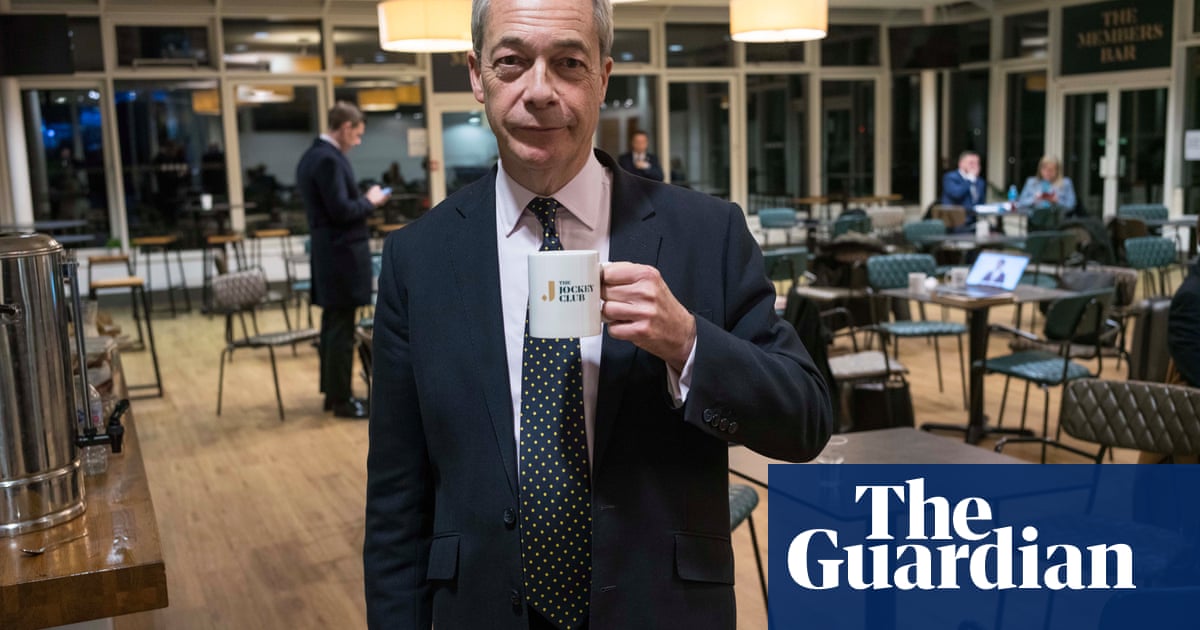You may have heard of Cop29, the global climate change conference that doesn’t start until 11 November but has already been generating headlines for weeks. You are less likely to have heard of Cop16, the international summit on biodiversity. It wrapped up two days ago but has barely scraped the news agenda.
The lack of interest in Cop16 extended even to the participants. A whopping 80% of countries failed to submit plans for meeting a landmark UN nature agreement at the conference, as they had promised to do. Even Colombia, which hosted Cop16, missed the deadline. And, as the summit wore on, representatives noticed with mounting alarm a “lack of concrete progress” on any of the major targets they had set themselves.
It’s not as if the mass depletion of nature isn’t an urgent problem. Since 1970, wildlife populations have declined on average by 73%. Since 2015, we have lost a number of species forever: the golden toad, the Pinta giant tortoise, the mountain mist frog, several bats and birds. We heard at Cop16 that 46,000 species face extinction, including more than a third of the planet’s trees.
But as woods empty of wildlife, coral reefs ossify and the wind howls through wastelands that used to be rainforests, the focus of governments, environmentalists and industry has become lopsided. Climate change sucks up all the attention. Nature loss loses. The world has never met a single target to stem the destruction of wildlife.
Contrast, for example, the politics of the two Cops in Britain. When in 2022 the prime minister, Rishi Sunak, announced that he would not be attending Cop27, a public backlash forced him to change his mind. Another outcry followed his progress at Cop28, at which he deigned to appear for the span of half a day. But there is next to no pressure for prime ministers to turn up at the biodiversity conference. This time Britain was represented by a “nature envoy”, appointed to the role – hastily perhaps – just one day before Cop16 started.
The trend stretches back decades. It can be traced, I think, to the 1980s and early 1990s, when environmental movements shifted priorities. They largely stopped talking about saving whales, pandas or the rainforests, and started talking about degrees in temperature. “Global warming” – now “climate change” – became the headline message. The shift continues. There is up to eight times more media coverage of the climate crisis than of biodiversity loss. Are we making the right choice here? Does this matter? You could argue that the problems are so closely linked that it doesn’t. As the planet warms, scientists predict a series of “extinction cliffs”, where a small change in temperature will wipe out entire ecosystems: we can’t save the animals without dealing with the warming planet. But then you can’t halt climate change without the help of nature, either. Forests, wetlands and oceans absorb carbon dioxide from the atmosphere. Trees reduce flooding and cool the surrounding areas. Lose them, and we lose the fight.
But here’s the main problem with the narrow focus on degrees in temperature that characterises the way we now talk about saving the planet: it is clean and precise, but it’s also far too abstract.
When you are trying to generate enough emotive power to shift the habits of every nation on the planet, this matters. Our sterile mathematical approach lacks visceral pull. We should talk far more about the human cost of climate change, which dry statistics often miss. Last week, for example, Valencia in Spain experienced deadly flooding, which scientists have linked with rising temperatures. And we should also talk about animals. Save the Whales was one of the best known and most successful conservation campaigns ever run. Why? It had a charismatic creature on every badge and poster.
after newsletter promotion
This is one of three problems with our choice to focus on numbers. The second is that statistics on global warming can be hard to grasp. It is difficult to picture exactly what the 0.2C increase in average temperatures – reported to be happening every decade – really means. It also sounds rather small: after all, we are used to much bigger fluctuations throughout a single day. But averages miss the fact that bigger shifts are happening at the extremes.
The third is that a focus on climate change and the “two degree threshold” – the point at which irreversible tipping points are to be reached – also places the problem somewhere in the future. When we discuss global warming we tend to talk as if the effects are yet to come. But the damage is happening now.
Part of the solution is to pay more attention to the real-time danger we are facing around the planet. When we talk about climate change we should talk in terms of deaths and human risk. This would make it easier to visualise and also offer a sharper sense of urgency. People respond better to an emergency: people trapped in the Australian bushfires, or dying from heat exhaustion – than a large and long-rolling crisis.
And we should also talk about nature. We care about animals – perhaps, in Britain at least, to an unreasonable degree. We are, after all, the nation that flew cats and dogs out of Kabul in August 2021 as the Taliban terrorised the city. In September, a British donkey charity was reported to have received more donations in a single year than our four leading domestic abuse charities combined. Could we not be making better use of this rather pathological empathy we have for furry creatures?
Then, too, what is often missing from environmental campaigns is a hope for the future. Doom and gloom cause people to switch off. But nature is surprisingly resilient, and rebounds if given half a chance. What if movements led with a positive vision of clear water, clean air and birdsong?

.png) 2 months ago
21
2 months ago
21













































